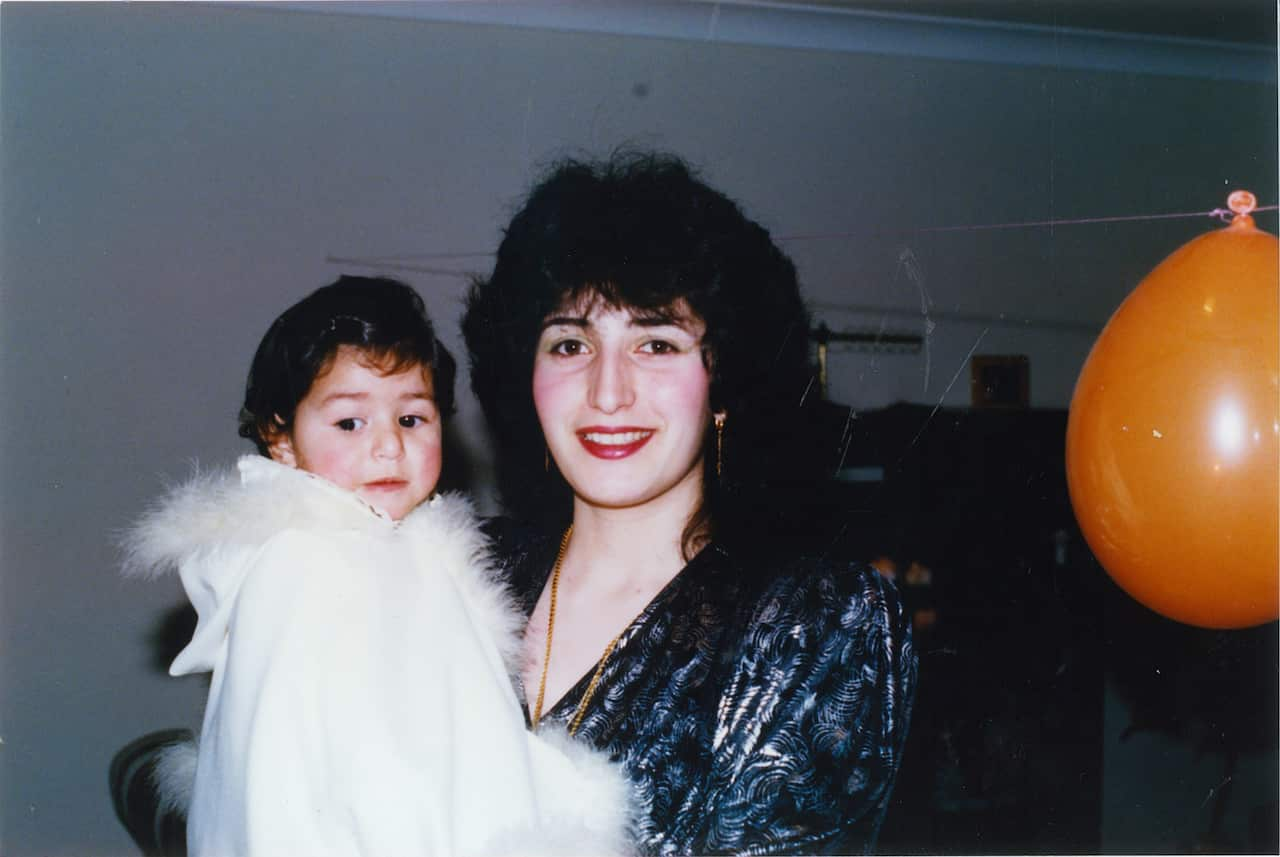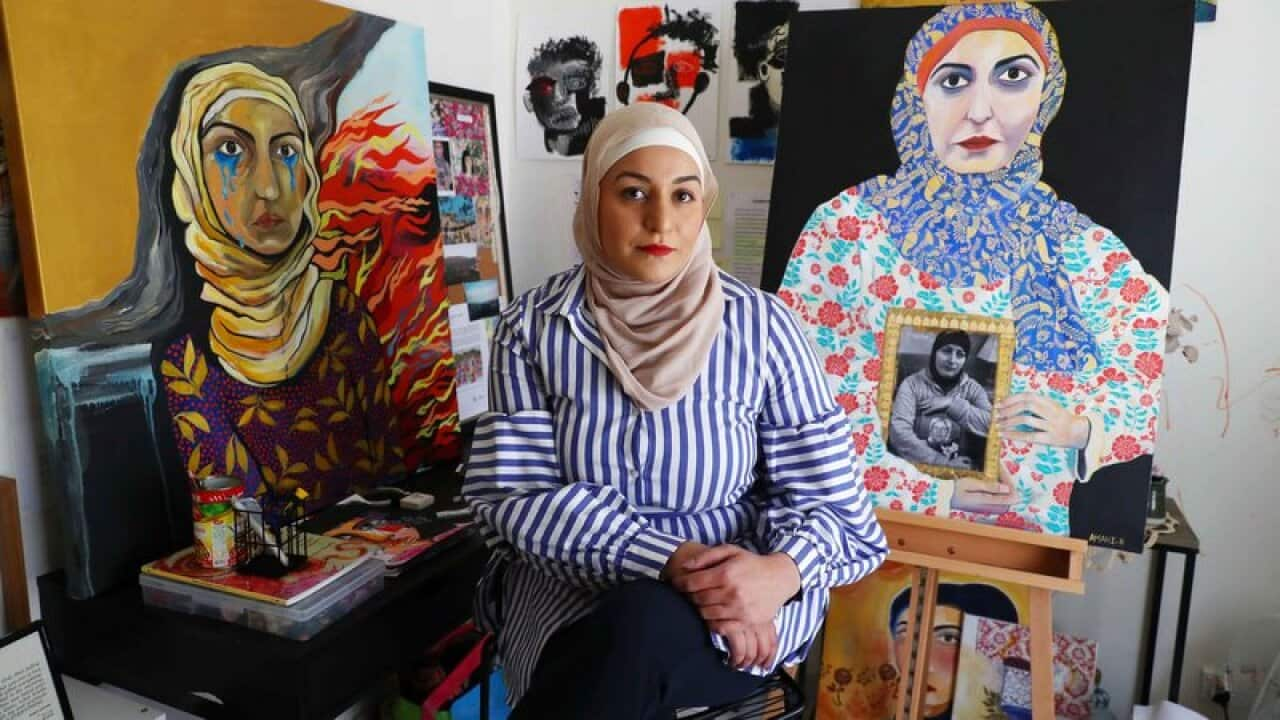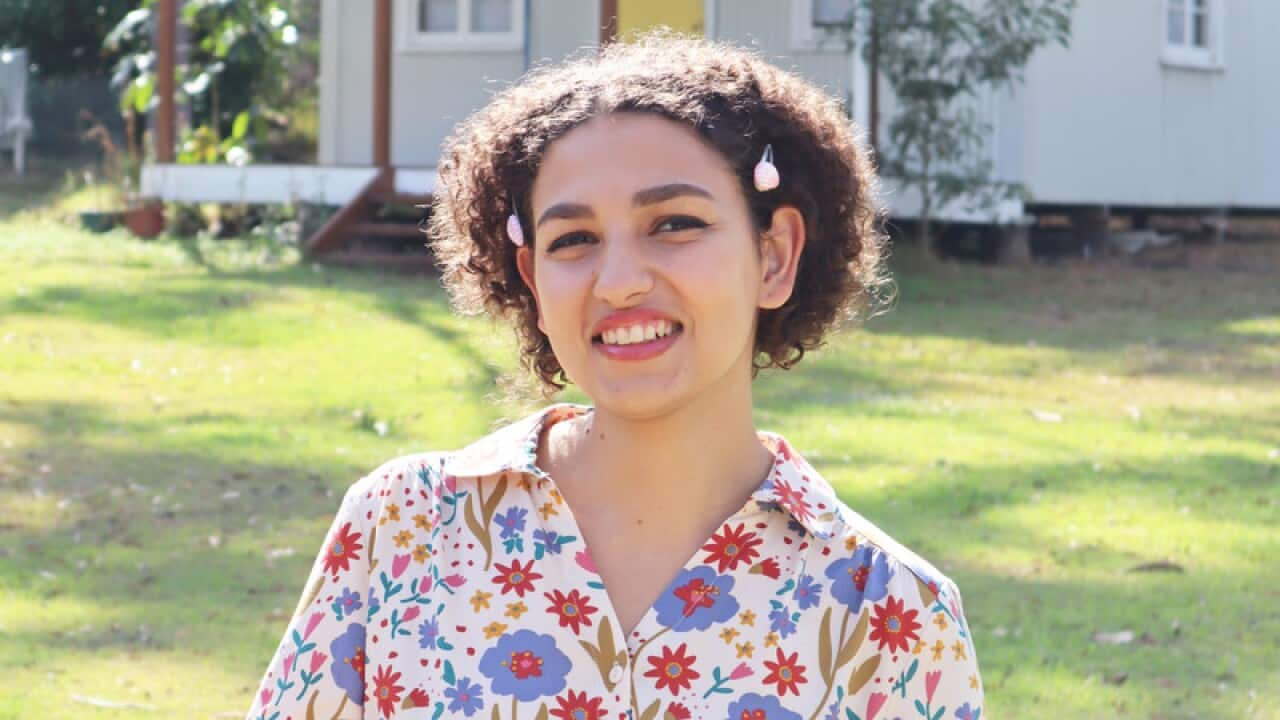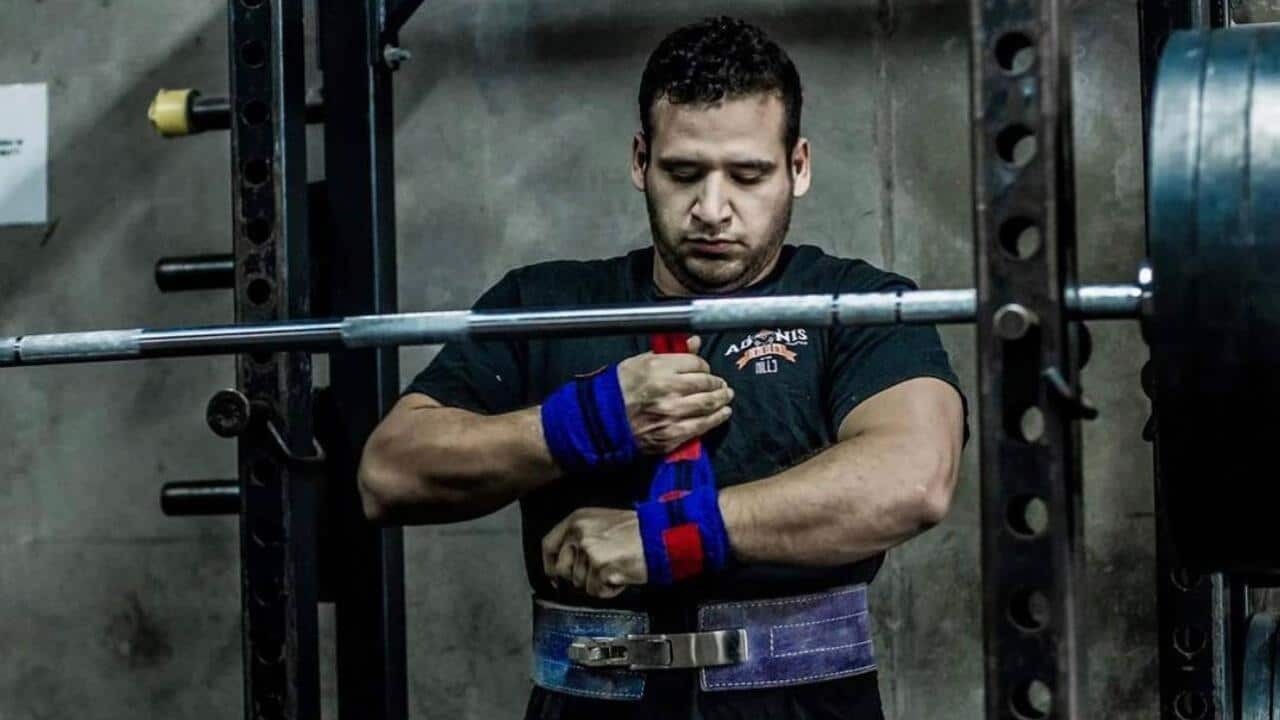Listen to Amani Haydar's story by clicking on the audio link attached to the image above. Or via your favourite podcast platform here
“I am many things and none of them belong to my father. The battles I’d fought to make him proud stopped making sense when he murdered my mum.”
Since her early years, Amani Haydar always loved painting. Her childcare teacher was proud of her drawings and tried to point her mother's attention to her talent.
“I asked my mum to buy me supplies instead of toys for birthdays and she did, on the condition that it would not distract me from my studies.”
Amani is an artist, lawyer, mother and advocate for women’s health and safety based in Western Sydney. She uses visual art and writing to explore the personal and political dimensions of abuse, loss, identity and resilience. Her parents were proud of her talent, but they were careful to rein in her creativity. They frequently told her: "Art is not a career, don't forget about your homework."
Her parents were proud of her talent, but they were careful to rein in her creativity. They frequently told her: "Art is not a career, don't forget about your homework."

Amani Haydar as a baby with her mum Salwa. Source: Supplied
Her father did not think that art was something serious. Amani recalled that her father would say, “Aim for the moon and if you miss you’ll land among the stars.”
Amani's father was a taxi driver, despite having received two master's degrees in linguistics, and was qualified to translate English into Arabic. One of his hobbies was to memorise English idioms and Aussie colloquialisms.
“‘You should be a doctor or a teacher,” her dad proposed. “They are good jobs for a woman with a family.”
Here, Amani wondered about the goal her father set for her. "A woman with a family, was this the moon or the stars?"
“I was hardly a woman and hadn’t even thought about having a family. However, I knew that when the time came to make serious decisions about my future I would have to choose from a set of options that would please my parents. It would have to be something suitable for a girl; something which did not involve travel, late nights or being outspoken.” However, before she reached a place her father had chosen for her in the future, she needed to get into a selective high school for girls - St George in Kogarah.
However, before she reached a place her father had chosen for her in the future, she needed to get into a selective high school for girls - St George in Kogarah.

Finalist in the 2018 Archibald Prize. Currently on Display at Fairfield City Museum and Gallery Source: Amani Haydar
My Arab Identity Episodes Descriptions

My Arab Identity - بودكاست الهوية
“I wanted to get in so badly, albeit for different reasons then my parents – I wanted.”
Amani joined an intensive tutoring at a coaching centre to pass the school’s entry qualifiers exams.
“I got about four out of twenty for every maths quiz, six weeks straight.”
Several years later, when Amani decided to get married, when her husband asked for her hand, her father spoke of how wonderful she is.
He proudly told my husband in our backyard ‘I’ve never raised a hand at her!’
“As I stared at the struggling zaytoon tree in the back corner, I remembered preparing for selective school entry exams. I remembered Dad teaching me to convert fractions into percentages after another four out of twenty.”
Back at this lesson, she became frustrated at herself as she struggled to wrap her head around the concept.
“I felt embarrassed that I didn’t know the answer and guilty that my parents were spending so much money and time on coaching.” Amani's tears escaped her eyes at a sudden, and her father raised his voice, "Why are you crying?"
Amani's tears escaped her eyes at a sudden, and her father raised his voice, "Why are you crying?"

Amani Haydar and her sisters collecting their mother's Salwa Haydar graduation certificate. Source: Amani Haydar
After a few weeks of intensive tutoring at a centre in Belmore, in a class of talented students from Chinese and Korean backgrounds, as Amani recalled, her goal to attend this school began to look unrealistic.
“Ashamed but no longer in control of my emotions, I cried harder. My anxious mind painted a scene: I would miss out on the selective school, fail year 12 and end up homeless under a bridge somewhere. On drugs, with a torn shirt and holes in my shoes.”
Before she could calm herself, she felt the burning slap her father had directed at her face.
When he pulled his hand away, my cheek felt hot and tingly from the blast. My nose pulsed and began to bleed. I didn’t know where to look. The lesson was over. Blood and tears dropped onto the page of my exercise book.
“So, the truth is, Dad almost never hit me. He rarely raised a hand. But I rarely failed, made mistakes or cried; at least not around him.” At home, her parents used to fight endlessly and repeatedly “to the brink of divorce”.
At home, her parents used to fight endlessly and repeatedly “to the brink of divorce”.

The late Salwa Haydar in 1987 before she moved to Australia. Source: Amani Haydar
"At school, I was busy and happy with friends, but I wasn't allowed to socialise on weekends or holidays."
Art was her favourite subject at school. But she couldn't paint at home.
While other year-9 girls hid cigarettes and boyfriends, I hid my creativity.
Amani was studying throughout the afternoon so she could work on her art at night and secretly without her parents' knowledge.
"That year I received a bad report on math."
The report said: “Amani needs to be more active in her efforts to understand the content of this subject by completing her homework on time and revising work frequently. She needs to concentrate on her work in class and make a more consistent effort.”
“It was the end of the world as far as Dad was concerned.”
Amani went with her father to meet the teacher at a parent-teacher interview night.
She recalled the teacher said, “Amani talks too much”.
“Shit.”
“Dad was respectable back then, so he hung his head in a profound shame. His jowls sagged and his eyes ran from mine. He was sorry that he had had anything to do with my abysmal algebra,” she said.
“Fifteen years later, when Dad went to trial for murder, I walked into the courtroom and searched his face for that shame. I wanted so terribly to find a way not to hate him. I wanted a reason to let go of some of the anger.
Instead, as court officers came to cuff him, Dad puffed his chest and held his head high. He even waved and thanked his family for being there.
After meeting with the teacher, Amani's father expressed his disappointment telling her that “all his hard work and sacrifice was so that I would be successful”.
“He said he never planned to be in Australia forever but had stayed for the opportunities it gave his children and his entire life here would be a waste if we failed. I felt sorry for him; he did not have the moon or the stars and that was somehow my fault.
I am many things and none of them belong to my father. The battles I’d fought to make him proud stopped making sense when he murdered my mum.
Salwa Haydar, Amani’s mother, was stabbed to death by her father in 2015. Judge Peter Garling sentenced Haydar Haydar on 19 May 2017 to 22 years in jail for the murder as well as for causing grievous bodily harm to Amani's younger sister during the attack. After the trial, Amani resigned from her job as a lawyer for herself and for her little family.
After the trial, Amani resigned from her job as a lawyer for herself and for her little family.

Burnout Culture (2019) by Amani Haydar Source: Amani Haydar
“I needed to paint and spend time reimagining my life. As I painted I healed, and as I healed inspiration came frothing to the surface.”
Amani Haydar is a lawyer, artist and advocate for women's health, safety and well-being. In 2018 Amani became a finalist in the prestigious Archibald Prize and grew increasingly interested in exploring justice, trauma and healing through the arts rather than the courtroom. Her writing and illustrations have since been featured in ABC News Online, SBS Voices and Arab Australian Other (Picador, 2019). Amani serves as an executive board member at the Bankstown Women's Health Centre and her exhibition The Mother Wound is on display at Fairfield City Museum and Gallery until 23 November 2019. To view Amani’s artworks you can visit her Instagram page @amanihaydar
This is the second episode of the , in which young Arab Australians speak about how they navigate a mixed identity. Hear more episodes and read the rest of the stories .












